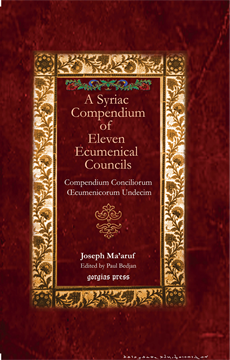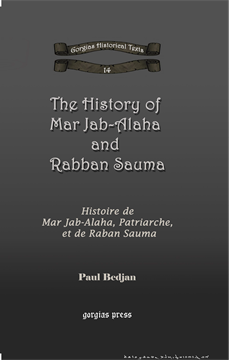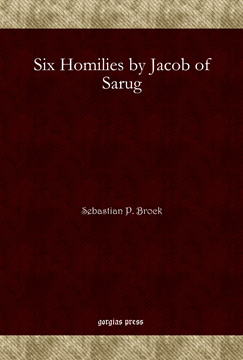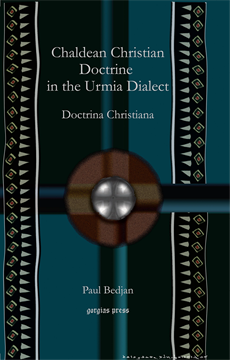A Syriac Compendium of Eleven Ecumenical Councils
Compendium Conciliorum Œcumenicorum Undecim, edited by Paul Bedjan
ISBN: 978-1-59333-417-8
Joseph Ma'aruf (1693-1713) produced (via an Arabic translation of the Latin) this Syriac compendium of eleven key ecumenical councils acknowledged by the Catholic Church. It is still read today, by Syriac-speaking Christians who wish to have a concise introduction to the theological decrees and canons of these great church councils which defined Catholic faith.
$155.00 (USD) $93.00 (USD)
The History of Mar Jab-Alaha and Rabban Sauma
Histoire de Mar Jab-Alaha, Patriarche, et de Raban Sauma
By Paul Bedjan
Series: Kiraz Chronicles Archive 14
ISBN: 978-1-59333-418-5
This books gives the Syriac text of the account of Yaballaha III, Church of the East Patriarch, and his vicar Bar Sauma, the Mongol Ambassador to the Frankish courts at the end of the thirteenth century.
$231.00 (USD) $138.60 (USD)
Selected Dialogue Poems [Sugyotho Mgabyotho]
Series: Bar Ebroyo Kloster Publications 1
ISBN: 978-1-59333-442-0
Dialogue poetry is a genre that began in ancient Sumer and continues in rich fashion in the Syriac tradition. Sebastian Brock has selected an edition of twenty six dialogue poems: between the Church and Zion; Abraham and Isaac; Joseph and Benjamin; the body and the soul; Joseph and Mary; the thief and the cherub; Mary and the Magi; the church and the believers; the angel and Mary; among the months of the year; between the angel and Zachariah; death and Satan; Jesus and the faithful; the two thieves; Jesus and John; the sinful woman and Satan; Abel and Cain; and wheat and gold.
$119.00 (USD) $71.40 (USD)
Six Homilies by Jacob of Sarug
ISBN: 978-1-59333-445-1
Jacob of Sarug (451–521) was a prolific writer of the Syriac Church and was known as “the flute of the Holy Spirit and the harp of the believing church”. Sebastian Brock gives the Syriac edition of six homilies written by Jacob: on the birth of our Lord; on the baptism of our Lord; on the Great Lent; on Palm Sunday; on Good Friday; on Easter Sunday. The text is based on an ancient manuscripts preserved in London and dated 609.
$109.00 (USD) $65.40 (USD)
Chaldean Christian Doctrine in the Urmia Dialect
Doctrina Christiana
By Paul Bedjan
ISBN: 978-1-59333-420-8
Paul Bedjan produced this catechism to advance the knowledge of Catholicism among Aramaic-speaking Christians of the Middle East. The book is written in Modern Aramaic, in the dialect of Urmia. The book is of interest not only for pedagogical purposes among the Aramaic speakers, but also will give the Neo-Aramaic scholar a literary text from the late nineteenth century.
$123.00 (USD) $73.80 (USD)
The Book of Ethics
Edited by Paul Bedjan
ISBN: 978-1-59333-421-5
Bar Hebraeus, a celebrated Syriac writer of the thirteenth century, wrote on nearly every subject imaginable. The Book of Ethics is a manual of discipline and etiquette covering secular life as well as spiritual life.
$241.00 (USD) $144.60 (USD)


![Show details for Selected Dialogue Poems [Sugyotho Mgabyotho] ImageFromGFF](https://www.gorgiaspress.com/images/thumbs/0005821_selected-dialogue-poems-sugyotho-mgabyotho_360.png)


